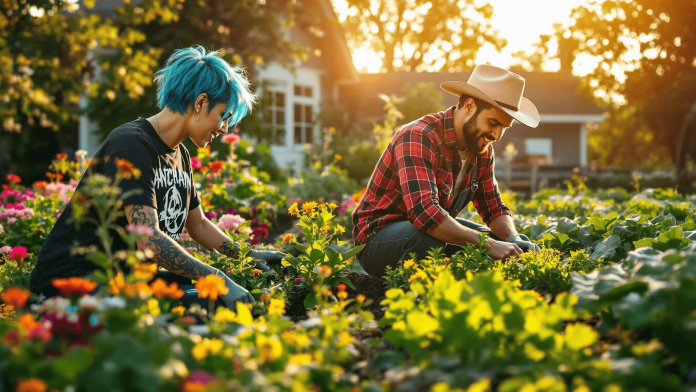Homesteaders are a diverse bunch. You’ve got folks from every corner of the political spectrum, practicing different religions, and holding various philosophies. Yet, somehow, they manage to coexist peacefully. Why is that?
Let’s start with this: political opinions, religious beliefs, and personal philosophies are deeply internal. They shape how we see the world and influence how we act, but they’re not something you can always see on the surface. Politics, in particular, is often about how people think society should be managed. For many, it becomes a way to project their convictions onto others—pushing for laws, rules, and systems that force everyone to live a certain way.
Homesteaders, though? They flip that script.
A Lifestyle That Unifies
Homesteading isn’t about telling other people how to live; it’s about taking responsibility for how you live. Whether someone’s motivation is environmental sustainability, independence, self-reliance, or just a better quality of life, the homesteading lifestyle draws people toward a shared set of values: hard work, self-sufficiency, and community-mindedness.
A liberal homesteader might focus on reducing their carbon footprint and growing organic food, while a conservative homesteader might emphasize family values and preparedness. Despite their differing worldviews, they’re both planting gardens, raising chickens and learning how to can vegetables. The why may differ, but the what often looks surprisingly similar.
Living Your Convictions
Here’s where it gets interesting. Homesteaders tend to hold strong political convictions, but instead of trying to enforce those convictions on others, they live them out themselves. If you think the government shouldn’t control food production, you grow your own. If you’re passionate about sustainability, you build a rainwater collection system and compost your scraps.
By focusing on what they can control—how they live their own lives—homesteaders sidestep a lot of the conflict that comes from trying to control how others live.
A Shared Destination
One of the most fascinating things about homesteading is watching people from vastly different backgrounds arrive at the same conclusions. A progressive homesteader and a libertarian homesteader might disagree on tax policy, but they’ll both tell you that knowing how to bake bread, grow food, and fix a broken fence is far more valuable than debating it.
This shared focus on practical skills over political debates creates a natural sense of unity. Sure, disagreements might pop up, but they’re easier to navigate when everyone’s busy building something meaningful.
Politics Without the Drama
At its core, politics is just a method for managing people. It’s useful for organizing large groups and setting societal rules, but it’s also where a lot of conflict comes from—especially when people insist their way is the only way. Homesteaders, by contrast, take a more personal approach to politics. They manage themselves.
This doesn’t mean homesteaders don’t have opinions about how society should work. Most do, and some have extreme opinions. But instead of trying to enforce those opinions on others, they use their energy to live according to their beliefs. That’s why you’ll often find homesteaders who disagree on significant political issues working side by side to build a barn or share seeds.
A Lesson for All of Us
If homesteaders from different walks of life can find common ground, it’s proof that political disagreements are navigable. Maybe the key is focusing less on managing others and more on managing ourselves. After all, when we’re busy building a life we love, there’s not much time left to argue.
That’s the homesteader way—and maybe it’s a path we could all learn from.


